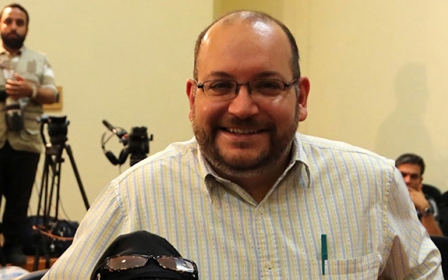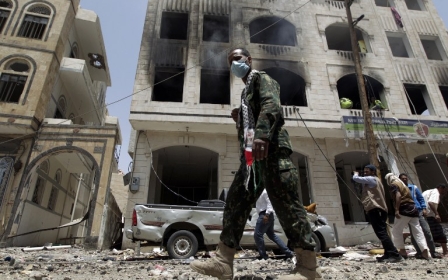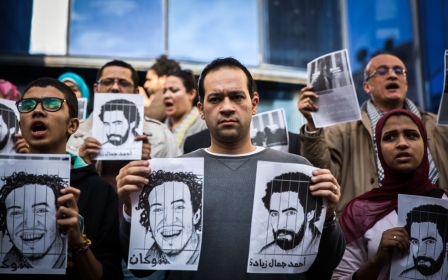Iran bans women's magazine over coverage of cohabiting couples

An Iranian women’s magazine has been shut down after publishing a front-page spread about the practice of couples living together outside of marriage.
Zanan-e Emrooz [Women of Today], a monthly magazine aimed at women, had published a cover story about the phenomenon of “white marriage,” the term used in Iran to describe couples co-habiting outside marriage.
Alongside an image of a woman and a man walking side by side in the street, the cover asked: “White marriage: Affliction or Treatment?”
Iran’s Media Supervision Board on Monday announced that Zanan-e Emrooz would be referred to the country’s courts for “violating national and Islamic values” by promoting the practice, Iran’s Mehr news agency reported.
There are no official statistics on the number of couples who choose to live together outside marriage, but Iranian political and religious leaders have directly addressed the issue in recent years.
Mahmoud Golzari, the deputy minister for youth and sports, has previously admitted that, while “white marriage” does exist in Iran, there are no statistics as to its prevalence and the numbers are not high enough to raise concerns.
However, officials close to Supreme Leader Ayatolla Ali Khamenei, the cleric responsible for most of the country’s policies and laws, have been more forthright on the issue.
Mohammed Mohammedi Golpayegani, who runs Khamenei’s office, condemned the practice in a fiery speech in November 2014.
“It is shameful for women and men to live together outside of marriage,” Golpayegani said, stressing that Muslim clerics should deal “strictly” with those who engage in the practice.
Homosexuality is illegal in Iran, and people found repeatedly violating the law are liable to be imprisoned or even executed.
'Deviant' magazine editor
Zanan-e Emrooz has made headlines in the past, with its founder Shahla Sherkat summoned before Iran’s press court last year for publishing images of women in the magazine’s inaugural issue that were deemed beyond the pale by authorities.
Sherkat’s previous outfit, entitled simply Zanan [Women], was shut down in 2008 by the government of former president Mahmoud Ahmedinejad, after officials accused it of “portraying the situation of women in a dark light”.
The magazine had published monthly issues for 16 years – a year after its shutdown, Sherkat described the publication as her “16-year-old daughter”.
It had been “the longest-running and most popular feminist publication in post-revolutionary Iran,” according to Nina Ansary, an Iranian historian focusing on women’s movements.
The decision in 2014 to allow Sherkat to start up a new women’s magazine, Zanan-e Emrooz, kindled hope among some that the year-old government of President Hassan Rouhani might be delivering on its promises of a dedication to women’s rights and gender equality.
However, from the outset the publication faced criticism by hardliners.
When it was launched, Iran’s state-controlled television questioned whether Sherkat, with her “background and deviant views,” should be allowed to publish.
“Seven years after the closing down of the ‘Zanan’ magazine, managed by a woman with feminist and western views, a magazine with a different title, yet run by the same woman, has today been authorised for publication,” the report said.
Zanan-e Emrooz’s first issue, whose cover featured a group of female veterinarians with the headline “We are happy with our decision,” was much less bold than the content that was seen in the publication’s predecessor, Zanan, according to Ansary.
The stories represented “a strong, yet cautious, opening act,” she said.
However, the first issue landed Sherkat in court – its second featured a cover story called “The rise of new fathers,” accompanied by an image of a man holding a baby and trying to pull on a pink rubber glove with his teeth.
New MEE newsletter: Jerusalem Dispatch
Sign up to get the latest insights and analysis on Israel-Palestine, alongside Turkey Unpacked and other MEE newsletters
Middle East Eye delivers independent and unrivalled coverage and analysis of the Middle East, North Africa and beyond. To learn more about republishing this content and the associated fees, please fill out this form. More about MEE can be found here.




